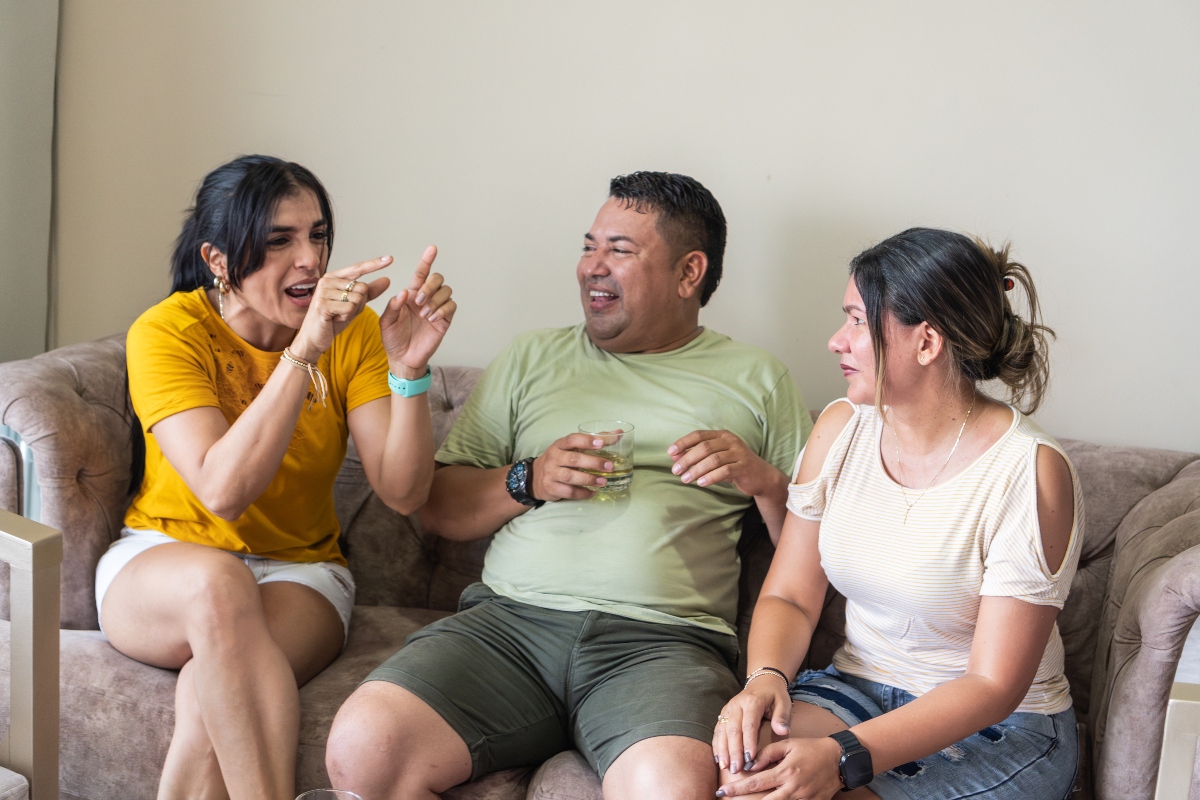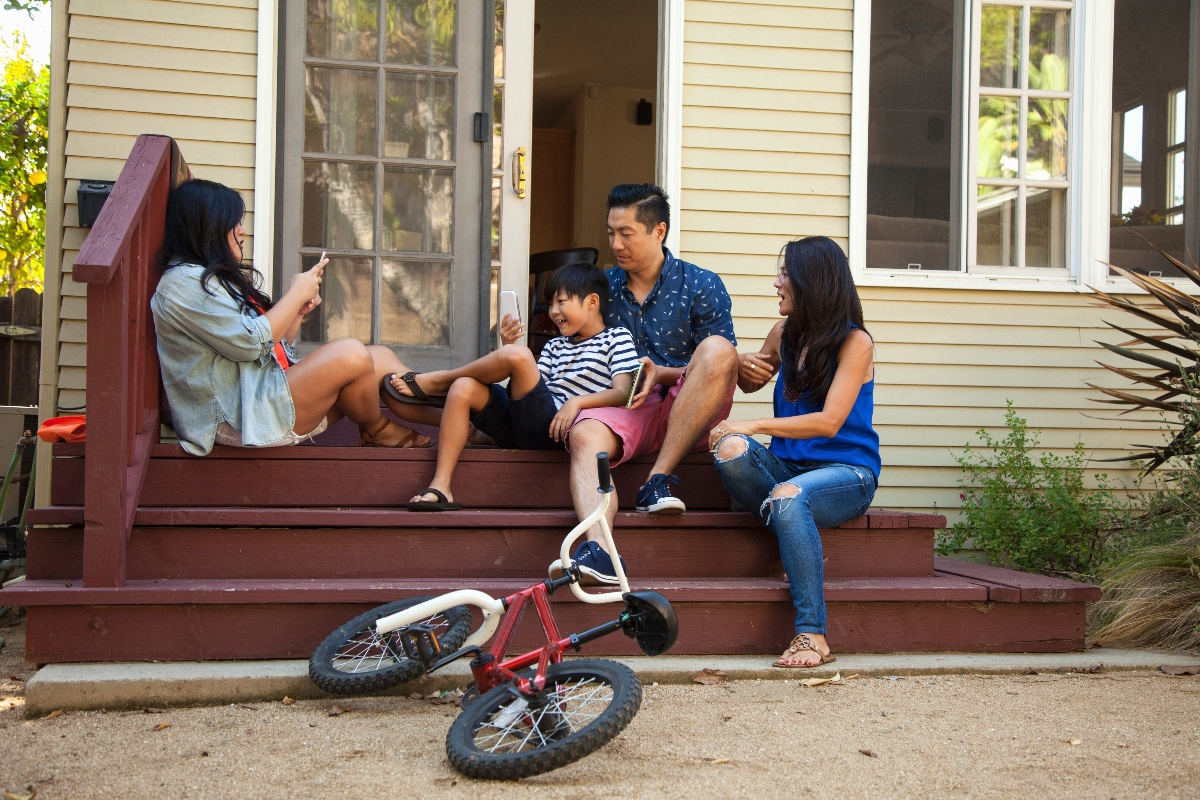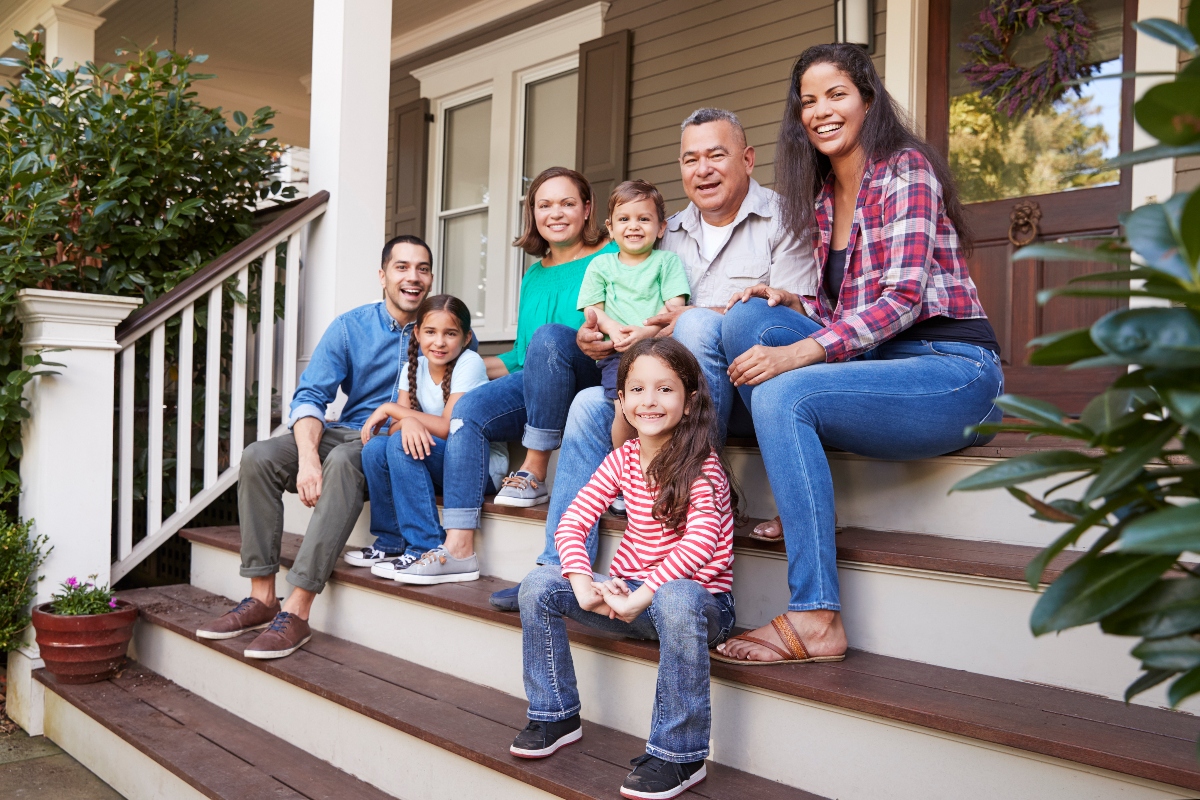“This house doesn’t fit a pin, but nobody sleeps alone here. That phrase, spoken by Rosa, a Salvadoran immigrant in Los Angeles, sums up a growing phenomenon in U.S. Latino communities: shared housing among family members. Whether out of necessity or cultural tradition, living with one’s mother-in-law, brother-in-law or even compadres is common practice, but not always easy.
According to data from the Pew Research Center, more than 30% of U.S. Latino adults live in multigenerational households, a number that has grown significantly since the pandemic and inflation crisis of 2022-2023. The average cost of rent in cities like Miami, Los Angeles or New York exceeds $2,500 per month, which has forced many families to join forces under one roof. But is it really a good idea? QuéOnnda.com tells you all about it.
Pros of shared housing in the U.S.

Significant economic savings
Sharing expenses such as rent, electricity or internet allows Latino families in the U.S. to significantly reduce the cost of living.
This can mean more money available to pay debts, send remittances or save for a home of your own.
Emotional support and help with children
Having a grandmother or brother-in-law at home can be a great support in raising children or in times of family crisis.
The closeness between generations strengthens bonds and reduces the need to pay for services such as day care.
Greater stability in times of uncertainty
Shared housing acts as a “cushion” against economic emergencies or loss of employment.
This survival strategy has been key for many immigrant families during difficult times.
Cons of living with relatives

Lack of privacy
One of the biggest challenges of shared housing is the loss of personal space and autonomy.
Shared bedrooms and overcrowded bathrooms can add to daily stress.
Family conflicts
Tensions over who cleans, pays for what or how children are raised can deteriorate family relationships if there are no clear rules from the start.
Is it really a good idea?
QueOnnda.com
Legal problems with the lease
Many landlords have strict policies on the number of occupants.
Exceeding it can lead to penalties or even eviction, especially if the new tenants are not on the lease.
What if you decide to share?

Make a written agreement, even if it is between family members. Establish monthly contributions and rules of coexistence.
Check with the landlord whether it is legal to add people to the lease.
Check local regulations, especially if you live in public or subsidized housing.
Shared housing is not for everyone, but it can be a viable solution if handled responsibly.
Latino families have demonstrated an admirable ability to adapt, support each other and move forward even in difficult circumstances.
But goodwill is not enough. It takes communication, clarity and a plan.
As urban planner Richard Florida points out, “Home is not just a physical space. It is also a social structure that can either sustain us or break us.”














